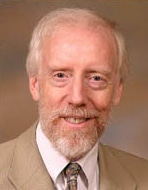Two of the three Directors on the board of the Natural Resources Stewardship Project are senior executives of the High Park Advocacy Group, a Toronto-based lobby firm that specializes in “energy, environment and ethics.”
Timothy Egan, is the president of the High Park Advocacy Group, and a registered lobbyist for the Canadian Gas Association and the Canadian Electricity Association. Julio Legos is the High Park Group’s Director of Regulatory Affairs, whose biography says, “Julio’s practice at HPG is focused on federal and provincial energy and environmental law and policy, particularly as they affect Canadian industry.”
The Executive Director of the NRSP, Tom Harris, is also a former High Park consultant, and the NRSP mailing address is in the building where, until recently, High Park maintained its Toronto offices.
It appears that High Park has taken a page from the APCO-Worldwide playbook. APCO is the PR and lobbying firm that created a “grassroots” organization called The Advancement of Sound Science Coalition (TASSC) on behalf of tobacco giant Philip Morris in the 1990s. In that situation, Steve Milloy “quit” APCO to set up a pro-tobacco website called www.JunkScience.com. Milloy later took over as executive director of TASSC and continues, today, to lobby against smoking restrictions. Documents, since made public, show that APCO established TASSC specifically to create the appearance of an arm’s length organization supporting tobacco’s cause.
In this instance, the creation of the NRSP as an “arm’s length” “grassroots” organization also enabled High Park and to avoid identifying who is paying for the NRSP’s public campaign against climate change regulations. The federal government’s own website makes this kind of “grassroots” lobbying subject to the restrictions of the Lobbyists’ Registration Act (subject to an important loophole).
The Question and Answer section under the General Registration Requirements of the act states:
“4. What is “grass-roots” lobbying?
“Grass-roots lobbying is a communications technique that encourages individual members of the public or organizations to communicate directly with public office holders in an attempt to influence the decisions of government. Such efforts primarily rely on use of the media or advertising, and result in mass letter writing and facsimile campaigns, telephone calls to public office holders, and public demonstrations.”
(Here, for the record, is a recent example of the NRSP’s Tom Harris doing just that.)
But setting up a separate organization allows High Park to claim an exception, also to be found in the Q&A section of the General Registration Requirements:
“5. I am involved in organizing and directing a grass-roots lobbying campaign. Do I have to register?
“If you are a registered lobbyist, you must report grass-roots lobbying as a communications technique. If you are not engaged in any registerable lobbying activity, it is not necessary to register for the grass-roots lobbying campaign.”
Thus, by removing himself from the High Park employee list and taking an office across the hall (the NRSP mailing address is #2-263 Roncesvalles Avenue, in Toronto; High Park’s address was, until very recently, #4-263 Roncesvalles Avenue) Tom Harris is able to carry out any direction Timothy Egan may be giving in this “grassroots” campaign against energy industry regulation without fulfilling what the Lobbyist act describes as the “obligation to provide accurate information to public office holders and to disclose the identity of the person or organization on whose behalf the representation is made and the purpose of the representation.”
The federal Lobbyists Registry was created specifically so that politicians and members of the public can know who is paying to influence the political decision-making process. To that end, the federal government’s Lobbyist Code of Conduct says:
“1. Identity and purpose
“Lobbyists shall, when making a representation to a public office holder, disclose the identity of the person or organization on whose behalf the representation is made, as well as the reasons for the approach.”
But Tom Harris is not technically a lobbyist and Timothy Egan and Julio Legos may well be “volunteering” their time as directors of the NRSP.
So, Egan is a registered lobbyist for the Canadian Gas Association, which is part of an energy industry coalition that includes the Canadian Nuclear Association, the Canadian Association of Oil Well Drilling Contractors, the Canadian Energy Alliance, the Propane Gas Association of Canada, Inc., the Petroleum Services Association of Canada, the Canadian Association of Petroleum Producers (CAPP), the Canadian Petroleum Products Institute, the Canadian Energy Pipeline Association and the Coal Association of Canada, (as well as some conservation and alternative energy interests such as the Canadian Energy Efficiency Alliance, the Canadian Wind Energy Association and Hydrogen and Fuel Cells Canada). But while a paid apologist for this fossil-fuel-dominated group directs NRSP operations, and while the NRSP‘s stated purpose is to block government action on climate change – the Canadian public has no right to ask who’s paying the bills for the NRSP campaign.
That may be legal, but it doesn’t seem right.
Subscribe to our newsletter
Stay up to date with DeSmog news and alerts







